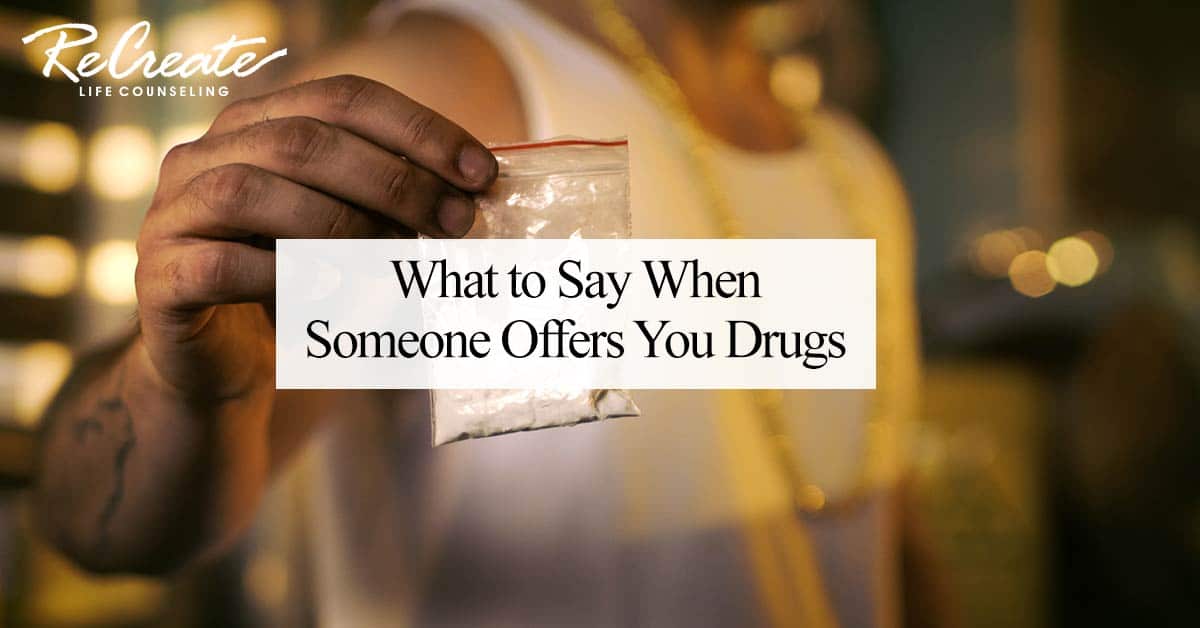Many of us went through the D.A.R.E. (Drug Abuse Resistance Education) Program in middle school or junior high school; a program developed to help promote healthy living and beneficial lifestyle choices. This program was first founded in 1983 and has since served as a useful tool in preventative education when it comes to drug use, alcohol use, gang involvement, and other forms of violence. Still, many of us chalk the program up to a mandatory part of middle school – not something we will need to refer to in our adult lives. The message is simple and straightforward – don’t do drugs.
This may seem like an easy concept to grasp. However, as we get older and we begin experiencing more of life, we might come to find that the tools we learned early on come in handy more often than we initially expected. The truth is that peer pressure is a very real issue, and it is not one that will resolve as soon as you graduate high school. Throughout your entire life – no matter who you are, where you live or what you do – you will be offered chemical substances from time to time. What do you say when someone offers you drugs?

Being Offered Drugs in Addiction Recovery
When someone offers you a chemical substance of any kind, the most important thing to communicate is that you are not interested – not now, not ever. Saying something like, “Not right now,” or, “Maybe later,” could send mixed messages, and it could result in the same person asking you a second time. Here are some examples of firm responses:
- No thank you, I’m clean and sober.
- I do not do drugs – addiction runs in my family, so I stay away entirely.
- I do not do well when I use substances; believe me, you don’t want to see me like that!
- Oh, I’ve done my fair share – drugs don’t agree with me. Thanks anyways.
- I have struggled with a drug problem in the past, so I completely abstain.
It is important that you immediately set a personal boundary that you will be able to stick to. This is part of relapse prevention, and it is a skill you will learn while you’re inpatient addiction treatment. While in treatment your counselor or therapist will help you figure out viable responses in case you should ever find yourself in a precarious situation. This way you will be prepared for the situation and you will already know exactly how to respond if and when someone offers you a mood or mind-altering substance.
Another important thing to consider is who you are hanging around with. Are you spending a lot of time with people who regularly offer you chemical substances? If so… why? Are you spending time with people who were in recovery with you and who recently relapsed? In early recovery (and throughout the entire recovery process) you should be trying to surround yourself with other like-minded people who have ample recovery under their belts and who take sobriety seriously. You are the company you keep!
Learning to Say “No” When it Comes to Drugs
At Recreate Life Counseling, we teach every one of our clients the tools they will need to stay sober for years to come, including the ability to set and maintain healthy personal boundaries. Learning to say “no” is a crucial part of recovery and doing so is a skill that must be learned. Those who have struggled with drug addiction are prone to saying “yes” to chemical substances – of course, this habit needs to change for long-term recovery to be achieved. To learn more about Recreate Life Counseling, please reach out today with any questions you may have.
FAQ
What are good reasons to say no to drugs?
Published on: 2020-07-19
Updated on: 2025-04-29



